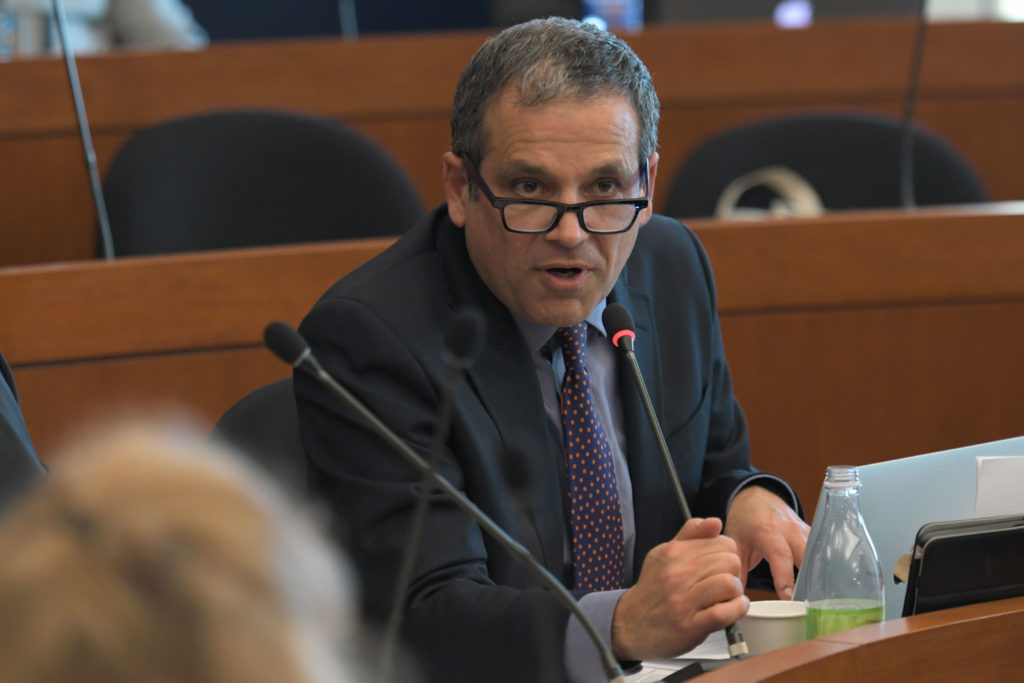Officials are rolling out a series of new leadership initiatives for “academic leaders” on campus in the next year.
The University will soon introduce an annual leadership conference, “lunch-and-learn” seminars and an academic leadership academy geared toward building networking opportunities, officials said. Officials and experts said the new initiatives could help faculty develop their management skills and grow into leaders like deans and provosts.
“The strength of our academic leadership can really impact the operation of a school,” Provost Forrest Maltzman said at a Faculty Senate meeting earlier this month.
Maltzman said the University decided to launch the initiatives to internally promote faculty to leadership positions and improve connections between administrators and professors. He said the University has already begun comparing similar projects at peer institutions and reviewing relevant research on academic leadership.
He said officials are also gathering input from leaders at GW to understand their priorities.
“The simple fact of the matter is that schools and units with strong academic administration thrive and those that don’t struggle,” Maltzman said in an email.
He said officials plan to begin soliciting nominations for the inaugural cohort of the Academic Leadership Academy this academic year. The one-year program will be “designed to facilitate cross-institutional networking among emerging academic leaders while building leadership capacity for the participating schools and units,” Maltzman said.
“Participants will benefit from a design that helps them develop the skills of effective academic leaders while applying what they learn to a real-world project,” he said.
He said administrators have also discussed the possibility of holding a forum bringing together academic leaders across the University after graduation but before the summer.
Maltzman added that officials plan to launch “lunch-and-learn” seminars for faculty and administrators as early as June, but he does not yet know how often the series will be held. He said administrators are “thinking critically” about topics they will touch on at the meetings.
“We know how busy our target audience is and will want to think carefully about which topics call for us to gather together academic leaders from across GW,” he said.
Maltzman said he and Christopher Bracey, the vice provost for faculty affairs, will oversee programs for academic leaders since his office already hosts training for the group annually.
“These new initiatives build on that offering,” Maltzman said. “The Office of the Provost will engage GW’s deans, associate deans and vice provosts for input and many internal and external colleagues who have first-hand experience with leadership development programming.”
Harald Griesshammer, an associate professor of physics and a member of the Faculty Senate, said the provost’s new initiatives are an “excellent idea” and can help faculty better understand the challenges administrators face when making hard decisions on University academics or finances.
“Even if the person does not continue in administrative positions, the initiatives strengthen the bond between administration and faculty because people get a perspective of the others’ thinking,” Griesshammer said. “It makes sure that administration is grounded and familiar with faculty realities, and that faculty understand the difficulties to make unpopular but necessary decisions.”
Higher education experts said developing new academic leadership initiatives for faculty will help them gain access to resources to become better leaders and possibly become deans or heads of departments.
Donna Qualters, the director of the Center for the Enhancement of Learning and Teaching at Tufts University, said Tufts has an academic leadership development program that spans four semesters and takes place online and in-person.
She said the university also has a “chairs roundtable” for current faculty leaders to discuss “issues that are common to them in their leadership position.”
“Academic faculty are not trained to be leaders, we’re trained to be teachers and researchers,” she said. “It’s a totally different skillset that’s involved in leadership.”
Linda Bleicken, the president of the American Academic Leadership Institute, a nonprofit organization that trains higher education administrators to become leaders, said the new leadership initiatives will help faculty improve their management skills.
“If our institutions aren’t finding ways to help build capability for leadership, then the next generation of leaders simply isn’t there,” she said.
Peter Lake, the director of the Center for Excellence in Higher Education Law and Policy at Stetson University, said faculty previously thought “the academic job was primarily in the classroom,” but now, leaders like presidents and provosts are seeking faculty input on issues including curriculum and admissions reform.
“What you’re seeing is that the new thinking is to not just include faculty directly in that dialogue but also develop leadership in the faculty and departments to assist the institution in being a little more fleet of foot in moving towards new opportunities,” Lake said.





